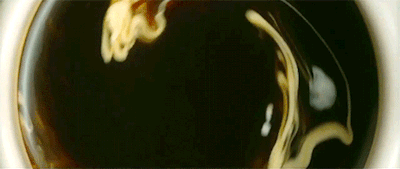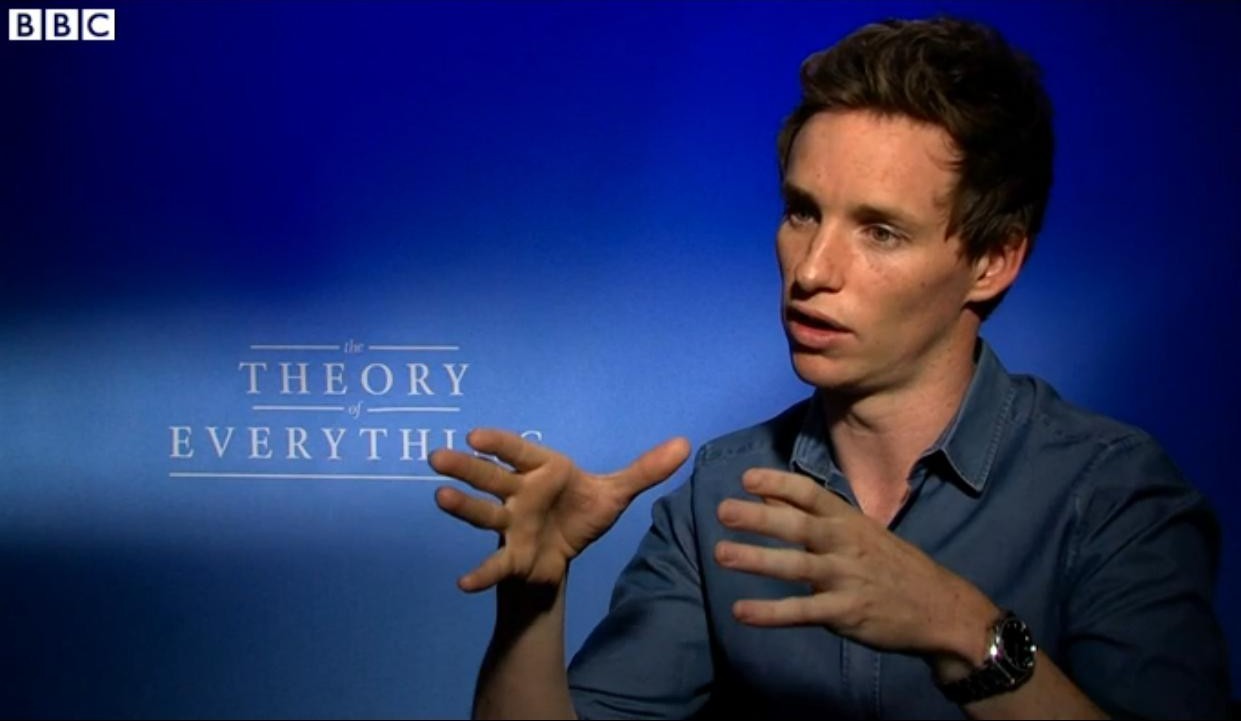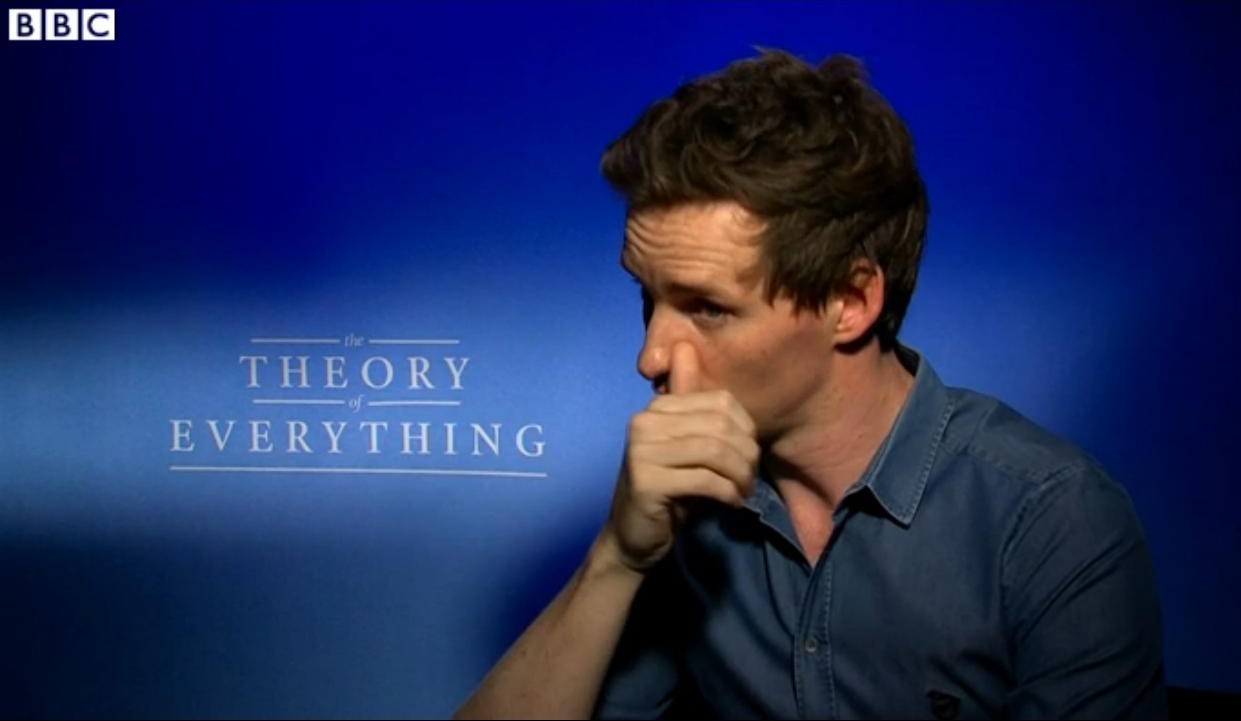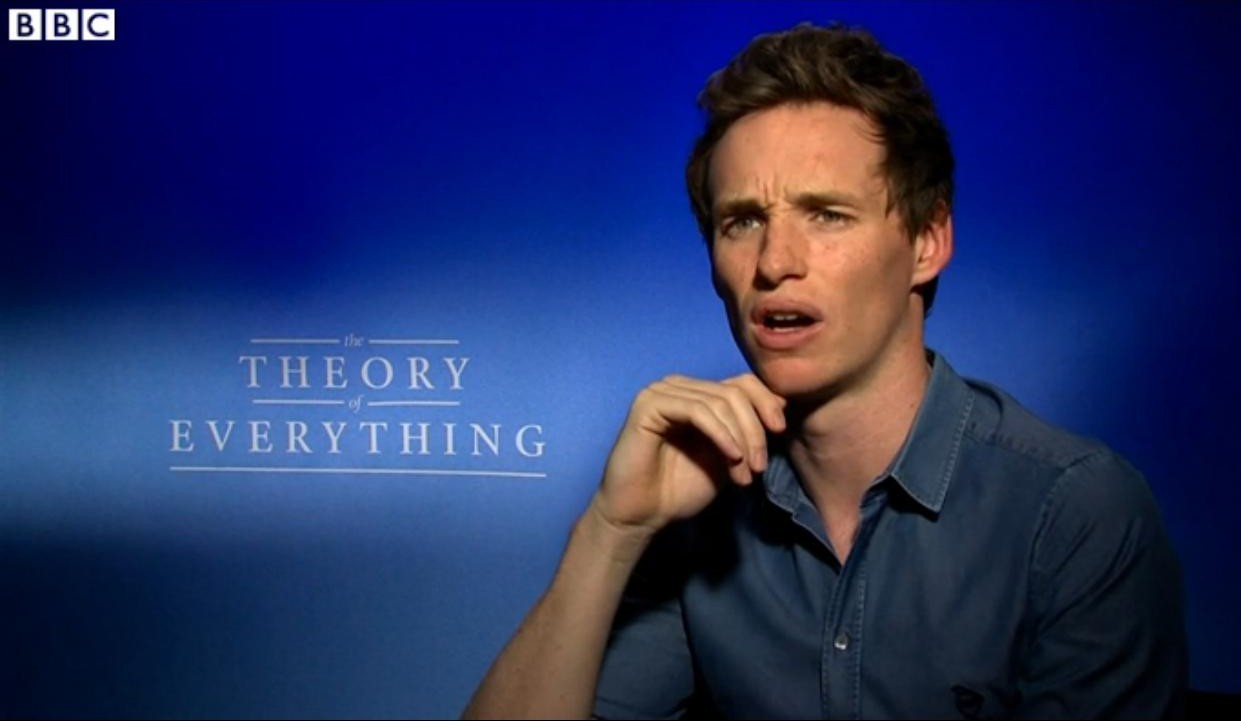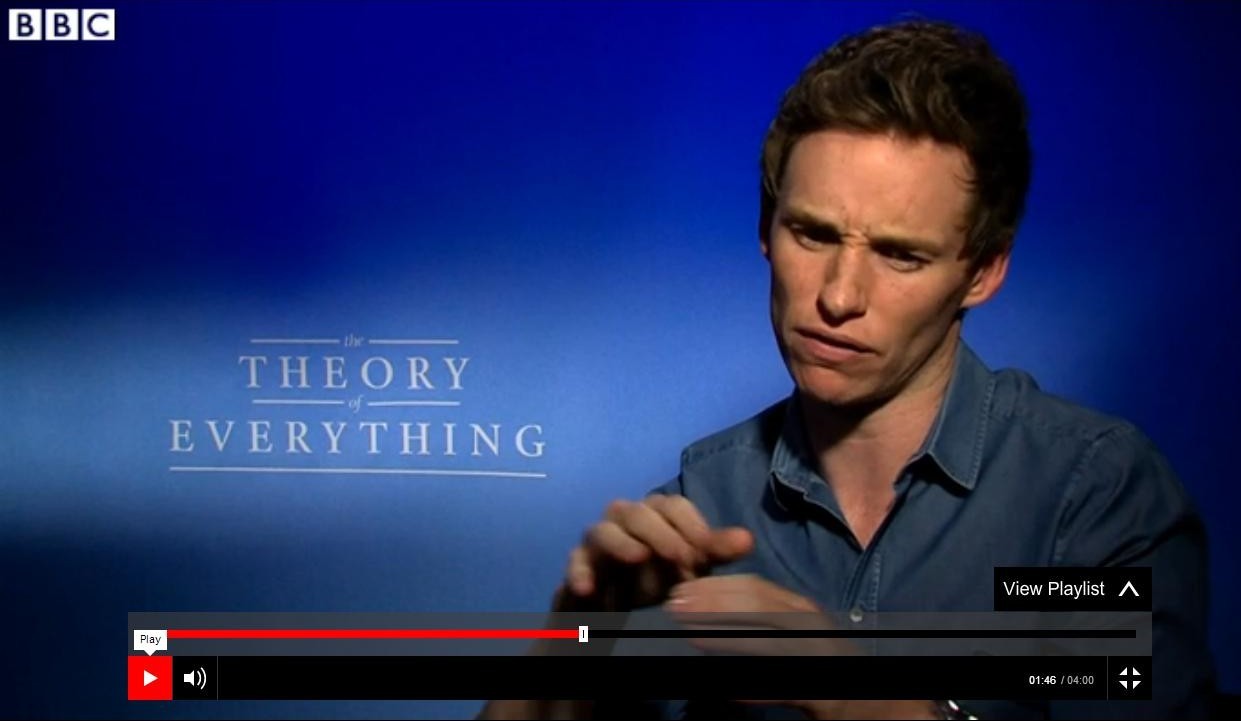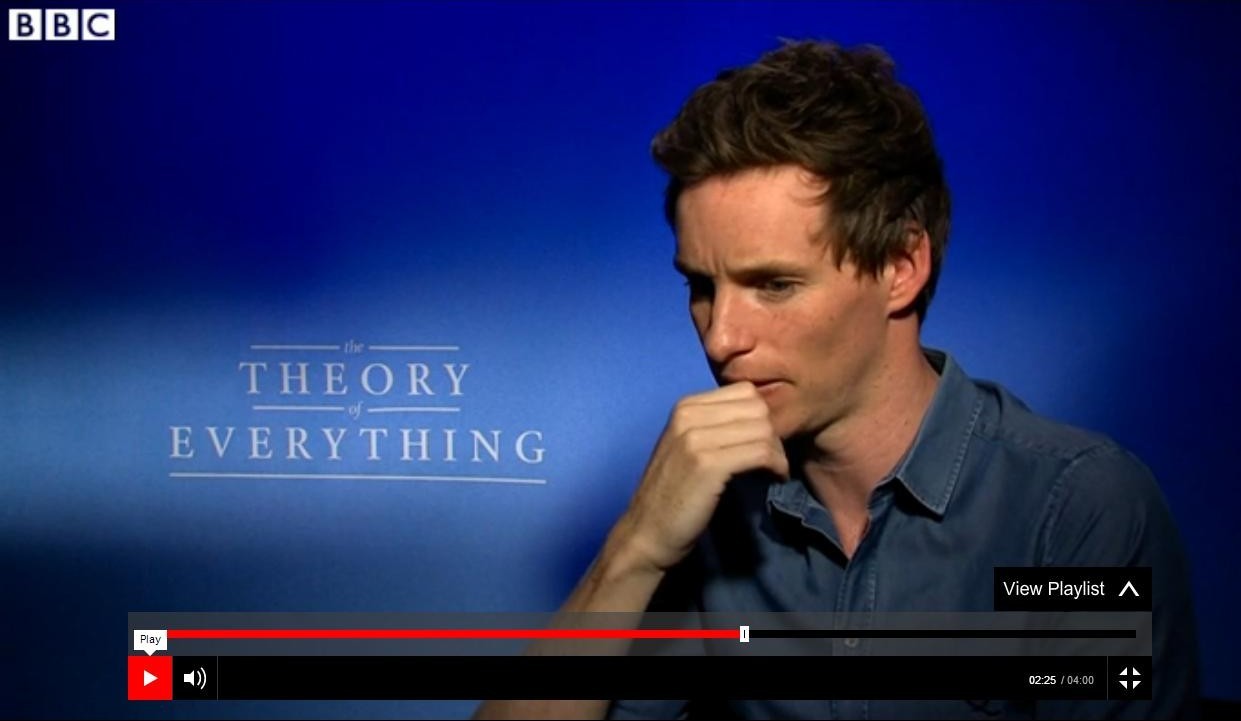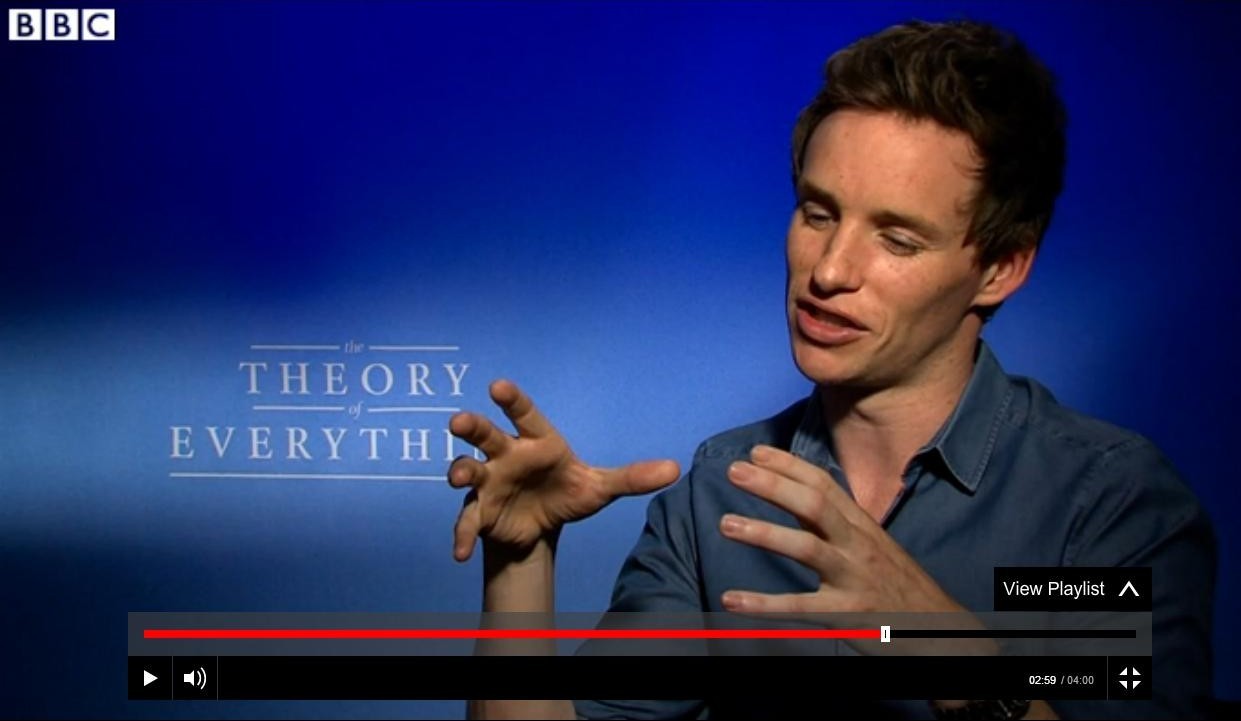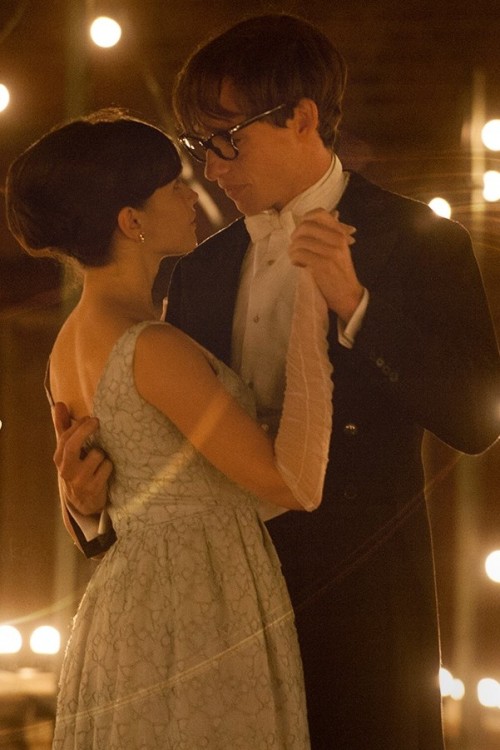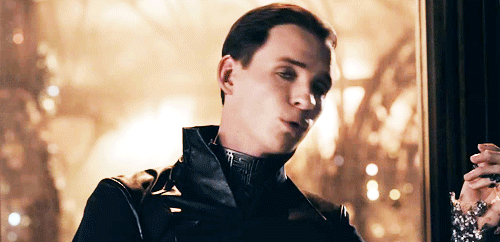BBC NEWS: Early Oscar buzz around Eddie Redmayne
Film critics are touting British actor Eddie Redmayne as a favourite to win an Oscar next year for his portrayal
of the British physicist Stephen Hawking...
Talking Movies' Tom Brook spoke to Eddie Redmayne to find out how the actor prepared for the role.
This BBC - Talking Movies article is based on this interview too:
Eddie Redmayne: ‘How I played Stephen Hawking’
Redmayne
has been praised for a visceral performance that drew on months of research into the disease. He tells
Tom Brook about meeting Hawking on set, and what he learned from spending time with MND sufferers.
“It’s like being in a prison with the walls getting smaller everyday…
…In The Theory of Everything, Eddie Redmayne seems like he was put on earth to play Stephen Hawking.
First he is a gawkishly charming Oxford grad student in physics, the kind of guy who scrawls out the perfect answers to his professor’s brain-teaser questions on a train schedule right before class. And then, after he’s diagnosed with motor-neurone disease, as the audacious genius of space-time theory whose mind only grows more infinite as his body crumples up, his head hanging off his neck, his limbs twisted and useless, his mouth contorting itself around the words (and that’s when he can still speak).
This is acting out of the My Left Foot handbook, except that where Daniel Day-Lewis twisted his virtuosity over a bottomless pit of passion and rage, Redmayne rarely deviates from Hawking’s whimsical quizzicality. It’s a less wrenching, more user-friendly tour de force.
Fortunately for Hawking, Jane (Felicity Jones), a comely, devoted fellow student, has fallen for his brain, and for his kindness; she marries him, gives him children, and (mostly) stands by him. That they have an active sex life is treated with a happy wink. It’s the film’s slightly funny way of saying,
“You don’t need to feel sorry for Stephen Hawking.”
I just wish that the movie allowed us to feel our way into his mind more. Not his theories, which shift back and forth with the wind: the universe is expanding, then it’s contracting, then time has an end, then it’s infinite – and it is all a great big metaphor for… love (or something). No, I wish that Hawking’s story had been made much more intensely personal and lacerating. When you watch The Theory of Everything, you know that Stephen Hawking exists – and Redmayne’s inspired mimicry nails him – but you also feel that if he didn’t, a movie like this one would have had to invent him.
Related article:
'I don't like to think of films being in competition with each other'-Cumberbatch on Imitiation vs Theory talk
Benedict Cumberbatch says there’s an audience for both his “imitation Game” and Eddie Redmayne’s
“The Theory of Everything”
